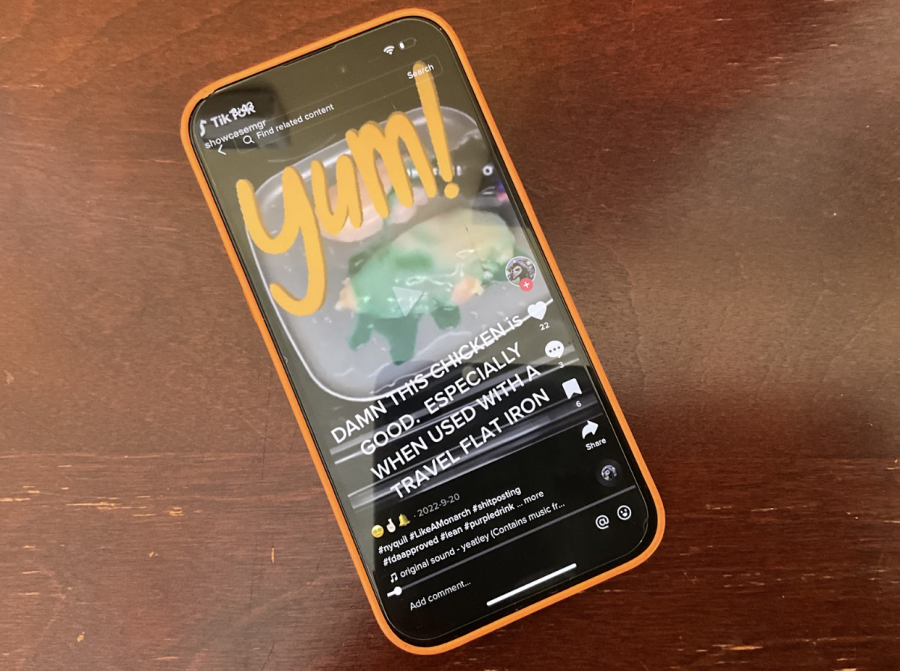Students react to rise in hazardous TikTok challenges
Photo taken by Henry Watson ’25
While TikTok has moved to block the search of “chicken nyquil” and “nyquil chicken” on its website, other keywords used to bypass the measure, such as “nyquil chinchin” are still automatically recommended by the company’s algorithm and display the same content.
Imagine you’re on TikTok, scrolling through an endless amount of short videos, favoriting the ones you find entertaining and texting your friends witty clips–all as you let the hours quickly pass you by. For many, filming and watching TikToks is an enjoyable pastime. However, for a small but growing portion of TikTok’s community, watching and filming videos can bring tragic consequences.
According to Pew Research Center, two-thirds of Americans aged 13-17 report that they use TikTok frequently, its popularity for teenagers only surpassed by YouTube. Across the United States, over 150 million Americans utilize the site on a daily basis, according to the company itself.
While any large social media site is almost guaranteed to feature unsafe content, TikTok has recently garnered attention in the public eye, part of which may be attributed to some users being fed videos that portray risky challenges, such as dropping a penny into an electrical outlet and heavily marinating chicken with Nyquil. The latter began trending on the site as “sleepy chicken” and prompted the FDA to issue a stern warning against participating in the trend.
I think that the amount of hate that TikTok gets is a little bit undeserved. Nobody is denying that there’s sometimes dangerous stuff on TikTok,
— Max Levy ’25
“In the beginning of the school year, I was recommended a ton of videos about people putting chicken into Nyquil,” Noah Fisk ’25 said. “I don’t remember seeing any warning notifications or anything. This kind of stuff shouldn’t be portrayed as a fun challenge.”
TikTok’s algorithms have also recommended challenges that garnered the focus of law enforcement. This included tutorials on how to use simple objects to steal cars, as well as another challenge that encouraged children to shoot gel beads out of toy guns. This incident led to local police in West Hartford to warn that participating in the trend could bring “dire consequences.”
Some students, however, have criticized the attention that TikTok has received for the dangerous trends on its website, and wonder whether the site really does play a larger role than any other sizable social media platform in promoting dangerous content.
“I think that the amount of hate that TikTok gets is a little bit undeserved. Nobody is denying that there’s sometimes dangerous stuff on TikTok,” Max Levy ’25 said.” But I don’t know any big [social media] site that doesn’t have bad stuff on it. That’s just how the internet works.”































































